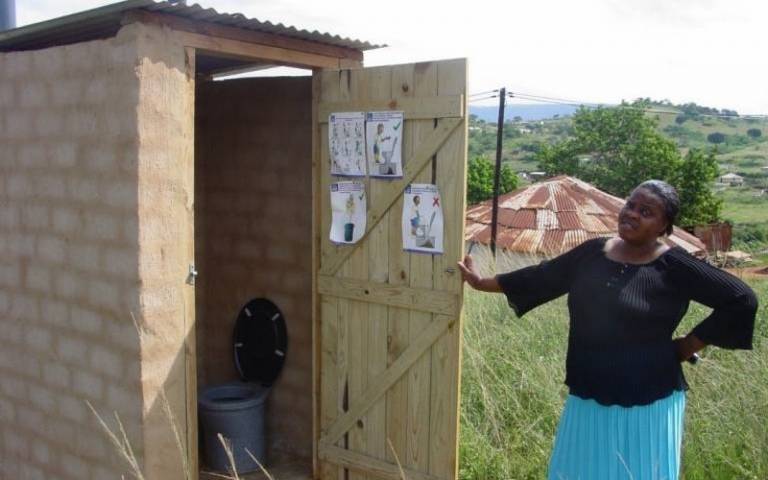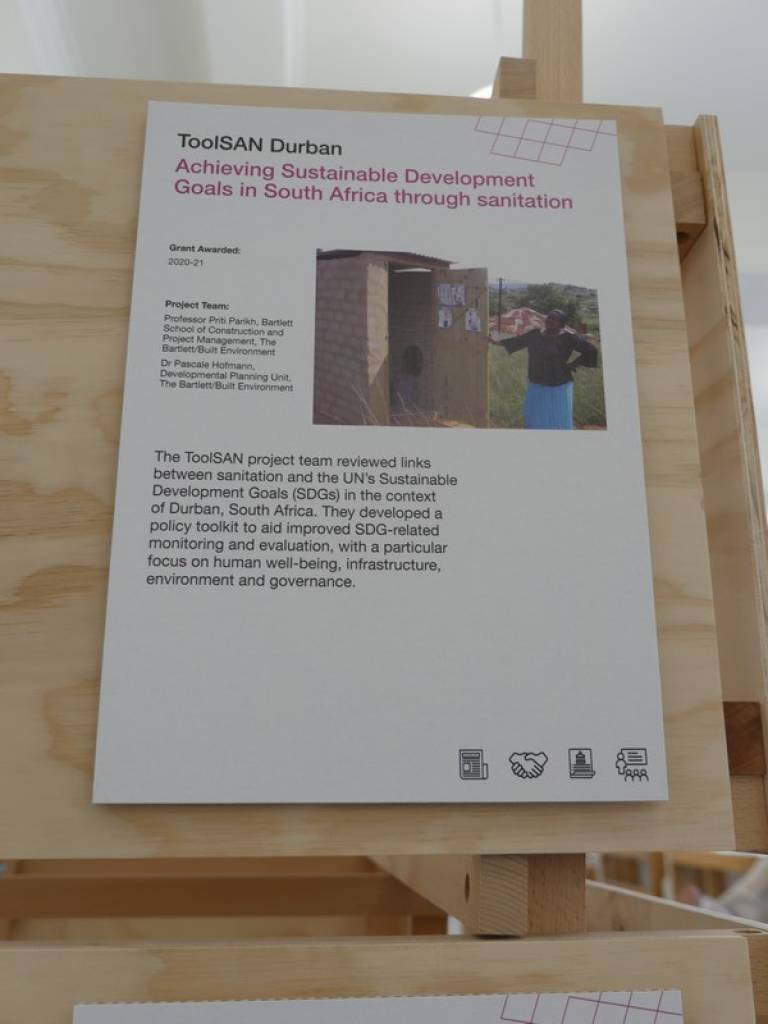ToolSanDurban: Policy Toolkit for achieving SDGs in Durban through sanitation
Reviewing links between sanitation and the UN SDGs in Durban to develop a policy toolkit to aid improved monitoring and evaluation.

3 October 2020
An interdisciplinary team, led by Professor Parikh reviewed evidence on synergies and trade-offs between SDGs and sanitation. Commissioned by Vitol Foundation this team conducted a systematic review of over 500 academic papers to identify synergies and trade-offs between sanitation and SDGs. They found synergies between sanitation and 130 SDG Targets (see published paper (Parikh et al, 2021, UCL Open Environment)). The team not only identified relevant linkages but further recognised the value in applying the approach developed to context-specific case studies. This was subsequently done for Brazil (published in Sustainable Development journal) and led to Water Aid commissioning the development of a policy toolkit for Africa.
The grant enabled the UCL team to develop a new collaboration with eThekwini Municipality and their SDG Committee. The UCL team used the funding to review links between sanitation and SDGs for the context of Durban to develop a policy toolkit to aid improved SDG-related monitoring and evaluation with particular focus on human well-being, infrastructure, environment and governance.
The collaborative workshops led to deep engagement between the UCL and Durban team. The research brought to the forefront the value of cross sectoral collaboration between government officials and various departments at eThekwini Municipality to tackle the sanitation crisis. Future work plans include extending the work to the energy and climate space where there are large funding streams anticipated in light of agreements formed at COP26.
Loowatt which are a leading waterless toilet company are installing their systems in Durban and have expressed interest in testing the approach to identify links with SDGs and compare that with other sanitation services.
To build on the existing partnership between UCL and eThekwini municipality the team have created a dissertation fellowship for MSc students at the DPU to explore how SDG11 can be used as a key entry point to harness synergies across SDGs through integrated approaches towards action to achieve the 2030 agenda.
Parikh and Hofmann noted: "The funding gave us the convening power to bring together high profile government officials to amplify their work on sanitation and hone in the value of cross sectoral partnerships. We managed to leverage expertise of government officials and partners thanks to the seed funding. The outputs have established our reputation as academics who can develop tools to engage with policy makers." Dr. Priti Parikh was recently recognised as one of the 100 most influential academics for policy by Apolitical. She commented: "Grants such as the Grand Challenges provides the space for developing innovative and impactful partnerships with policymakers."
Image credit: Urine diversion toilet near Durban. [Sustainable Sanitation Alliance via Flickr]

The ToolSanDurban project exhibition panel at the Grand Challenges, Grand Impacts exhibition, 2023
 Close
Close


